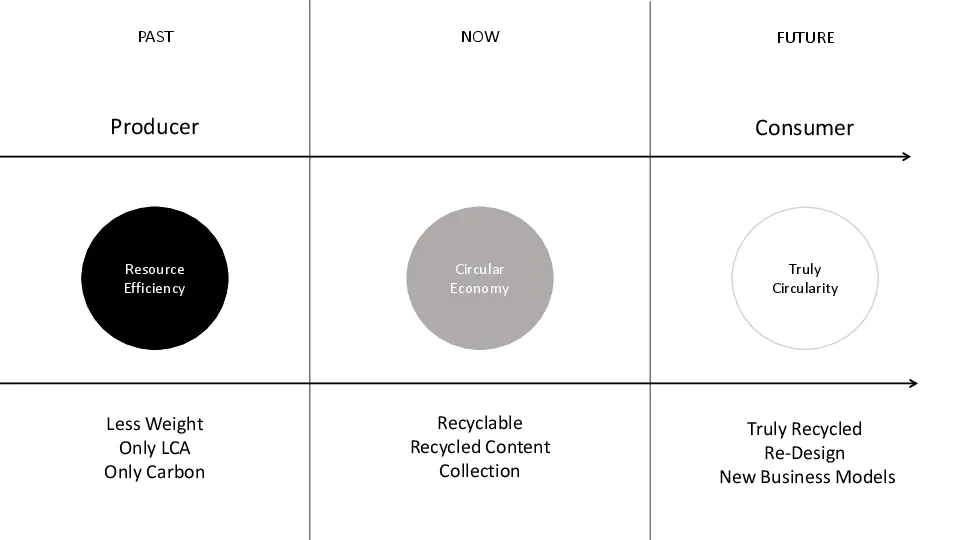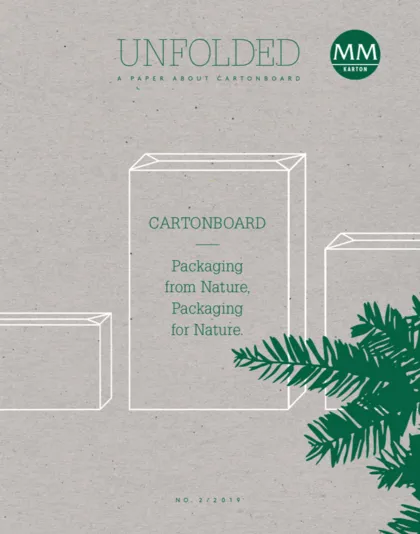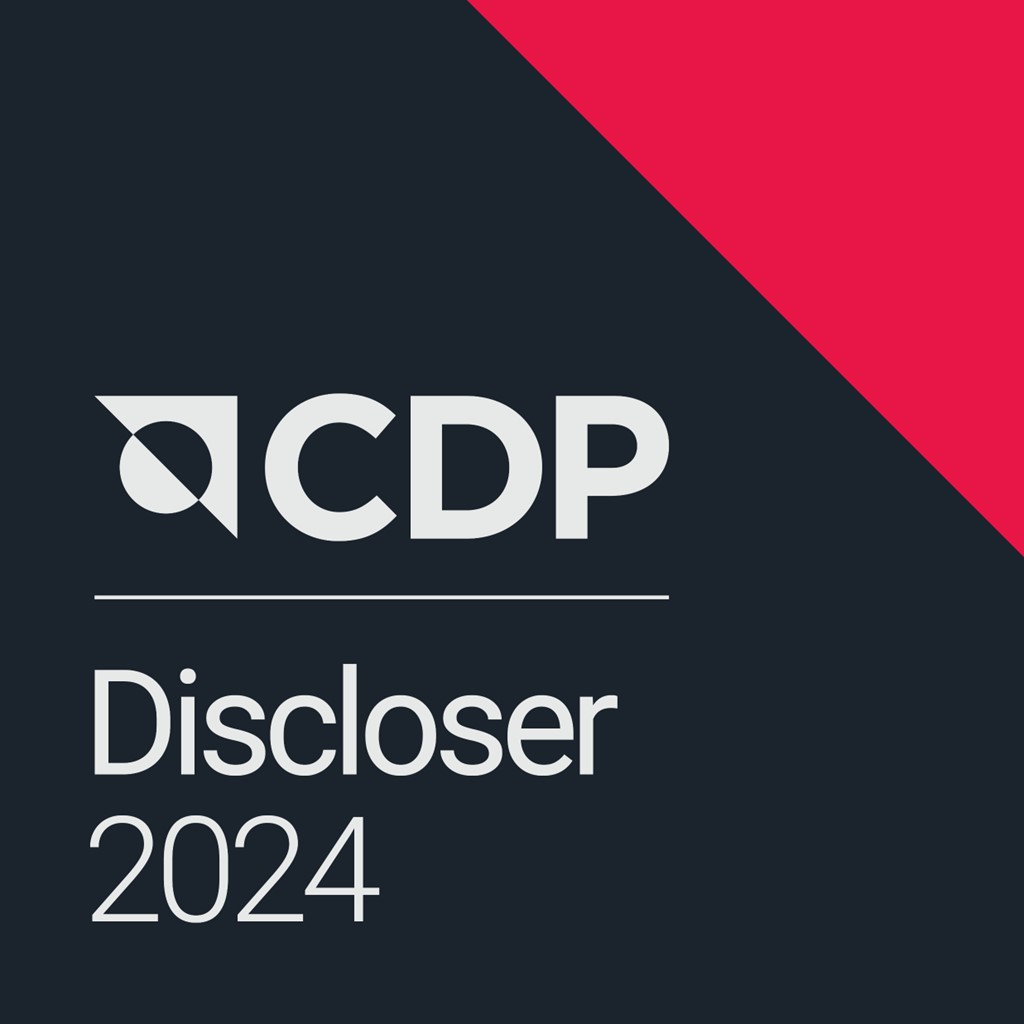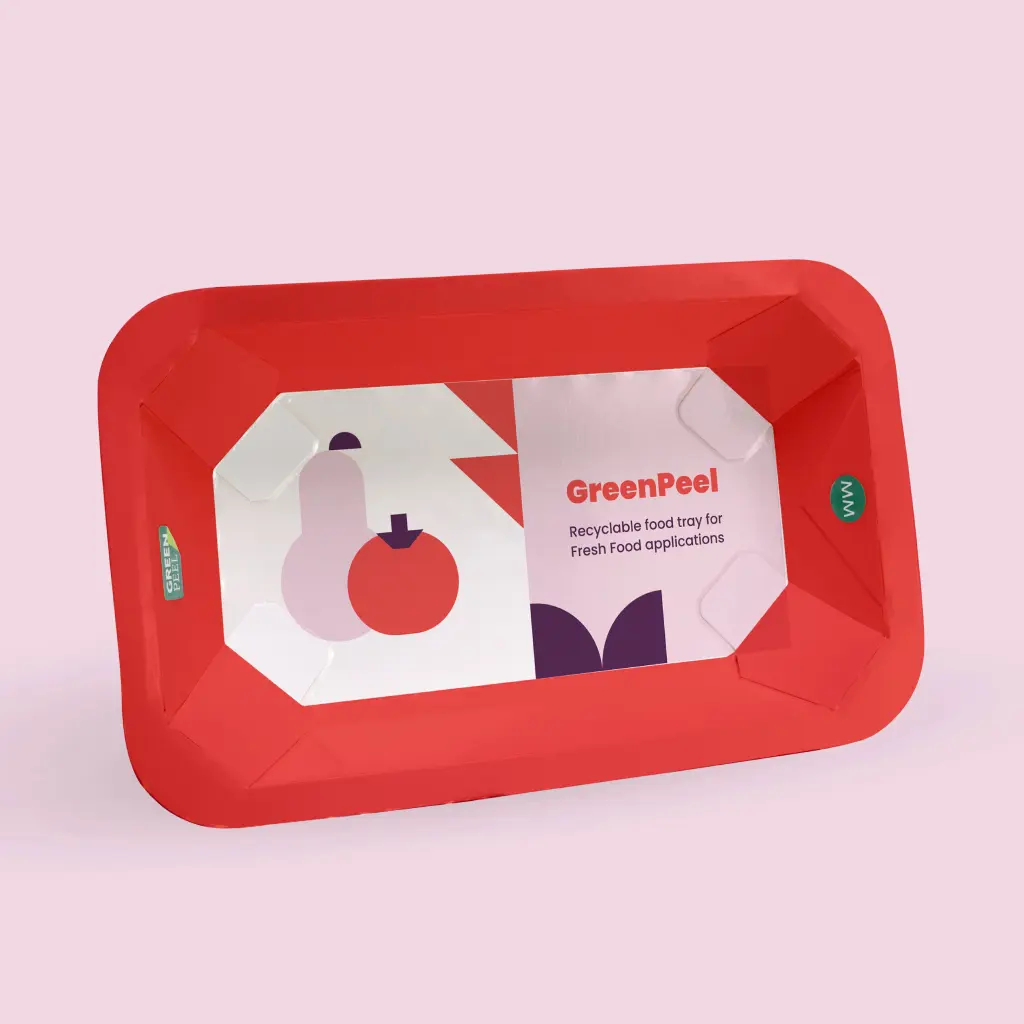Circular Economy: A Paradigm Shift
Important for the Industry for a long time, now a key concern for consumers.
Consumers see sustainability as vital and fundamentally important for brands, business and politics alike. An active and functioning circular economy is a crucial component of sustainability. Initiatives such as the EU Circular Economy Package and the Single-Use Plastics Strategy provide specific deadlines and legally binding targets aiming for a sustainable future. Packaging plays a central role in this and is therefore gaining strategic importance for leading companies.
ESTABLISHING A NEW MINDSET: FROM LINEAR TO CIRCULAR
Our previous linear approach to growth was based on the assumption that resources are abundant and can be disposed cost-effectively. However, this approach is not suitable to cover the current and, above all, future needs of mankind, while also preventing the further contamination of the oceans with plastic. A circular economy is a more sustainable, renewable system of closed product, material and energy cycles that have been created by minimising the use of resources and energy, as well as waste and emissions. As a paradigm
shift, the circular economy means constant rethinking of the use of resources (e.g. renewable), products (e.g. via design optimisation, long-lasting construction) and business models (e.g. based on reuse, recycling and repair) across the board.
The circular economy represents a remarkable opportunity to protect the environment while also generating economic power: Forecasts for Europe alone envisage that it will account for 1.8 trillion euros by 2030.
CIRCULAR ECONOMY FORMS THE BASIS FOR SUSTAINABLE PACKAGING
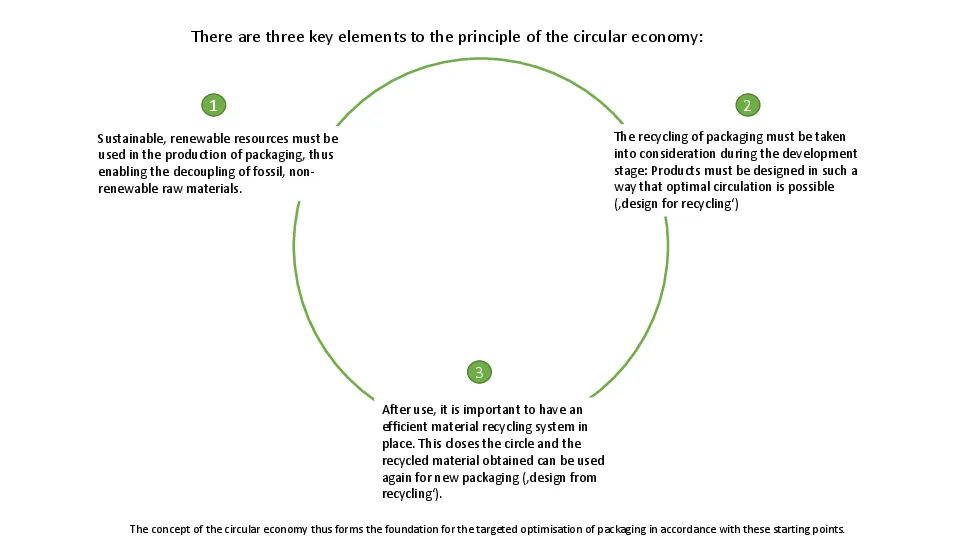
THE EU CIRCULAR ECONOMY PACKAGE AS A BINDING SET OF PRINCIPLES
The European Commission adopted the EU Circular Economy Package in late 2015 with the aim of establishing a more sustainable and competitive circular economy in Europe. This is intended to keep waste to a minimum in order to
prevent further contamination of the oceans, while raw materials and the resulting added-value should be retained within the EU, with the aim of promoting growth, innovation and creating jobs.
In doing so, the EU is committing to three principles to achieve the goal of a circular economy:
RE-USE AND RECYCLING
The EU Circular Economy Package sets ambitious recycling targets for all packaging materials.
According to Eurostat, the targets for cartonboard packaging (2025: 75 %, 2030: 85 %) have already been achieved, although some countries (Portugal 70 %, Poland 74 %) still have potential for improvement. The recycling targets for plastic packaging (2025: 50 %, 2030: 55 %) pose the biggest challenge: double the current amount of plastic packaging must be recycled by 2025.
MARKETBAN AND RESTRICTIONS
To comply with the Single Use Plastic Strategy, disposable items are to be reduced or replaced by existing, more sustainable alternatives by 2021 at the latest.
POLLUTER PAYS
A true-cost pricing approach is importantin achieving a circular economy. If all distributing companies placing packaging on the market had to bear the costs of disposal themselves, some packaging, especially that made from fossil resources, would become considerably more expensive. Manufacturers of the products affected by the Single Use Plastic Strategy must therefore bear some of the costs of cleaning measures, waste management and awareness-raising campaigns within the framework of Extended Producers’
Responsibility (EPR).
The packaging and consumer goods industry as well as the retail trade are facing major challenges due to the new legal regulations. Overcoming these can be achieved only by stepping up cooperation within the industry and between all stakeholders along the entire value chain – suppliers of raw materials, packaging manufacturers, the food and consumer goods industries, retail and wholesale trade, collection systems and recycling companies. Consumers must be given the means to live up to their responsibilities.
